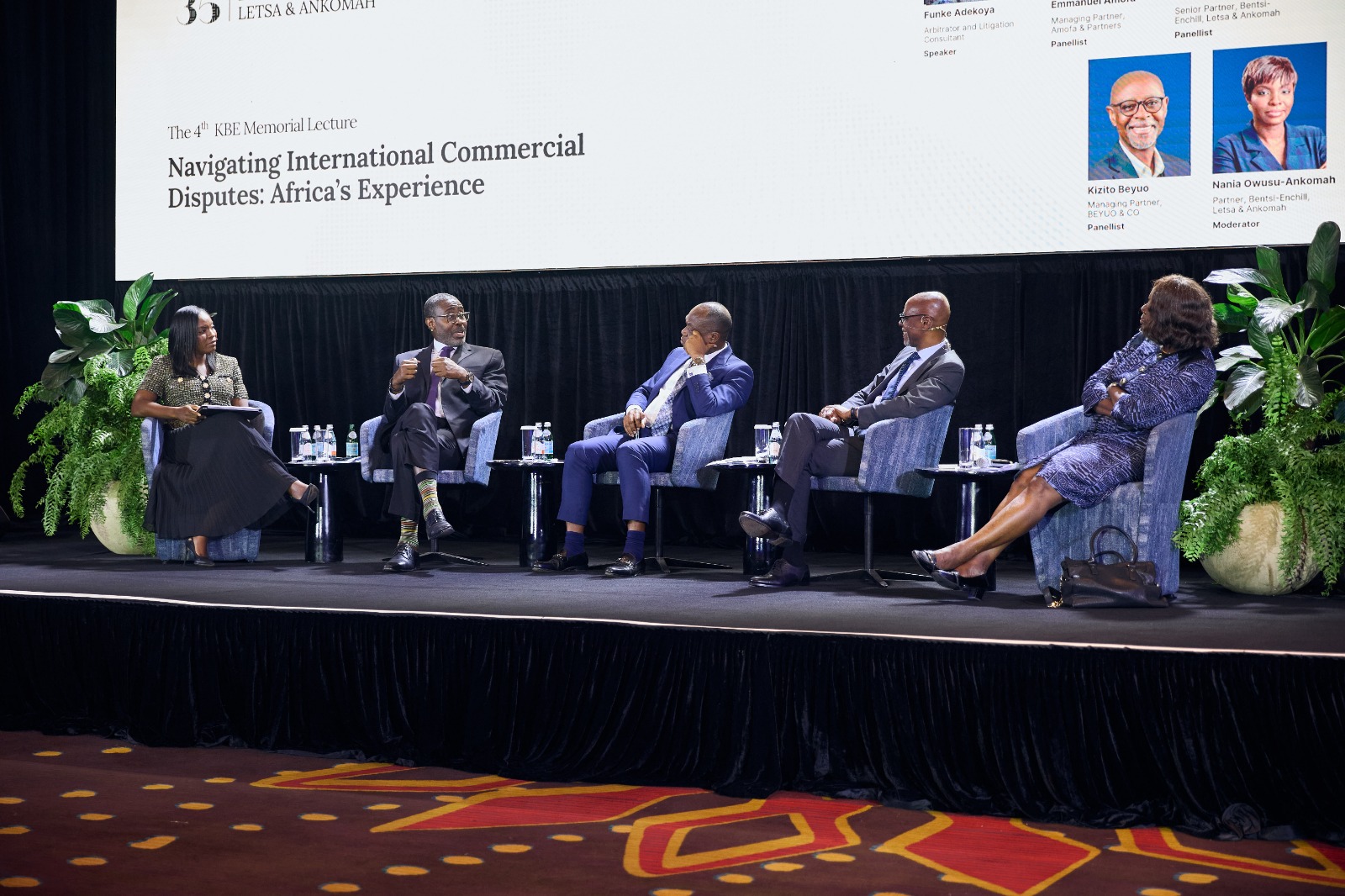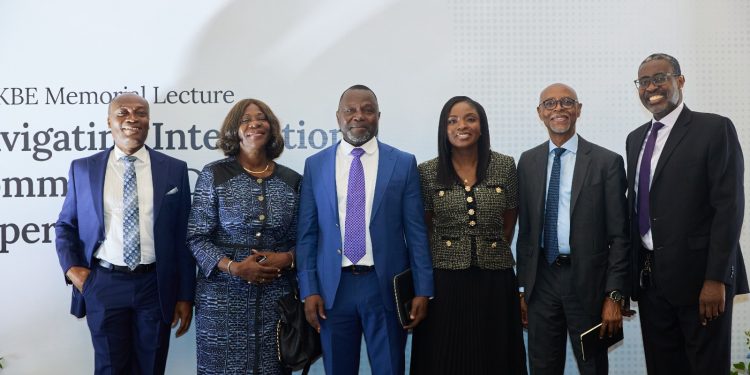4th KBE Memorial Lecture Calls for Effective Arbitration by Africa’s Legal Practitioners
The 4th Kojo Bentsi-Enchill Memorial Lecture has highlighted the growing importance of international arbitration in Africa and its role in boosting investor confidence and economic stability.
The annual lecture is organised by leading law firm, Bentsi-Enchill, Letsa & Ankomah, in honour of its founding partner, Kojo Bentsi-Enchill. The event brought together legal experts, law students, and the general public to discuss the future of cross-border commercial disputes as African economies become more integrated into global markets.
In his opening remarks, Guest of Honour, Dr. Dominic Ayine, the Minister of Justice and Attorney-General, shared his view, stating that as African economies become more integrated into global markets, cross-border disputes are no longer unusual but are becoming commonplace.
In her presentation, Madam Funke Adekoya, a litigation consultant and arbitrator, urged African arbitration practitioners to take deliberate steps to elevate their expertise and build a reputation that instils confidence in a global market.
She emphasised that the continent’s legal professionals must combine technical competence with strategic networking to claim their rightful place in international commercial disputes.
The rising tide of international trade and disputes presents a significant opportunity for African practitioners.

Madam Adekoya stressed that to fully capitalise on this, the most crucial area for growth is strengthening legal and procedural expertise. She advised practitioners to deepen their knowledge of public and private international law, international investment law, and the framework of the New York Convention, all of which are essential for effective representation.
Furthermore, she urged participants to focus on legal areas frequently involved in African disputes, such as natural resources, energy, construction, and telecommunications. A strong command of international trade law regimes, including the African Continental Free Trade Agreement (AfCFTA), is equally vital.
Building a track record of excellence is key, according to Madam Adekoya. This can be achieved by starting as co-counsel alongside established international firms or by taking on complex domestic arbitrations that mirror the complexity of international disputes. To enhance visibility, practitioners should consider publishing summaries of notable awards or procedural decisions that highlight innovative advocacy.
Madam Adekoya also called for a continuous refinement of advocacy and case management skills. She recommended enrolling in internationally recognised training programs to align written and oral advocacy, ensuring legal drafting is persuasive and clear. Active engagement with arbitration institutions and networks, such as the ICC Africa Commission, is also crucial for building a strong professional network.
The call for action comes at a time when the international arbitration community is increasingly focused on the lack of diversity, which Madam Adekoya believes calls into question the legitimacy of the entire dispute settlement system.
The event also featured insightful panel discussions addressing key aspects of Africa’s evolving legal landscape. The panel deliberated on topics including legal and regulatory reforms, judicial support and challenges, capacity building and skills transfer, as well as regional cooperation and knowledge sharing. The panellists were Ace Anan Ankomah, Senior Partner at Bentsi-Enchill, Letsa & Ankomah; Kizito Beyuo, Managing Partner at BEYUO & Co; Emmanuel Amofa, Managing Partner at Amofa Partners; and Nania Owusu-Ankomah, Partner at Bentsi-Enchill, Letsa & Ankomah.
The way disputes are resolved will ultimately influence investor confidence and the credibility of the continent’s legal systems. Well-managed disputes can strengthen the rule of law, attract investment, and ensure justice.








